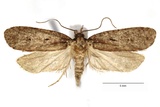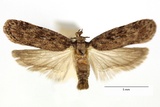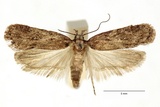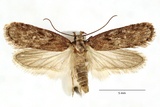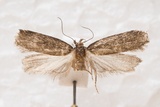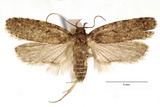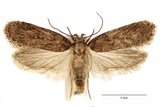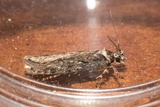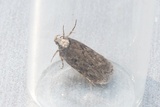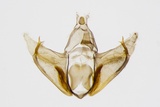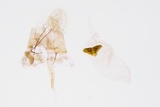Depressaria douglasella Stainton, 1849 Species
Last modified: Nov. 29, 2024, 12:44 p.m.
A local and very rare species in the southern part Belgium.
Details
- Classification
- Family: Depressariidae > Subfamily: Depressariinae > Genus: Depressaria > Species: Depressaria douglasella
- Vernacular names
- Bont platlijfje (NL)
- First mention in Belgium
- Van Daele E. & Pelerents C. 1969. Synthèse des observations effectuées pendant quatre années sur les lépidoptères nocturnes de la région horticole gantoise. — Mededelingen Rijksfaculteit Landbouwwetenschappen Gent 34: 31–56. On page 58.
- Status
-
Native
Distribution
Cocoon/pupa
A loose cocoon.
Bionomics
The exact oviposition place is unknown but oviposition is supposed to take place late in the year: August–September.
Early instars are unknown. Almost full-grown caterpillars construct a silken tubular spinning in a leaflet of the foodplant from where they feed on the adjacent leaves in May–June.
The last instar drops to the ground a spins a loose cocoon in the soil or among detritus in June–July.
It is unknown whether the species hibernates in the adult stage or as an egg or early instar caterpillar. The adults are rarely seen, they occasionally come to light.
Flight periods
One generation a year in July–September.
Observed on
- Host plant (species):
- Daucus carota, Pastinaca sativa and Torilis japonica
The caterpillars are primarily found on Daucus carota, but also on Pastinaca sativa and even more rarely on Torilis japonica.
Habitat
Grassland and rough ruderal places where the foodplants grow.
